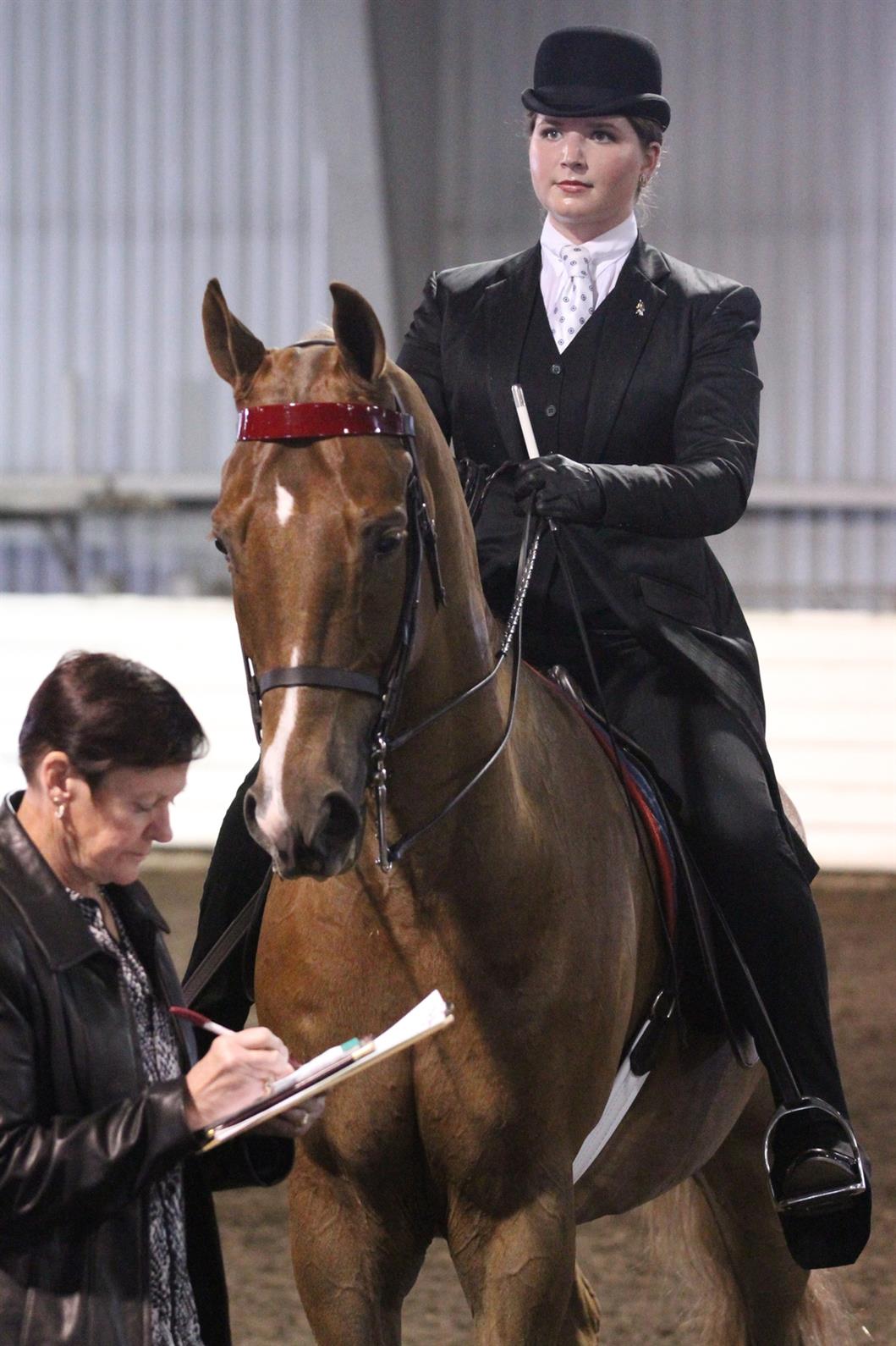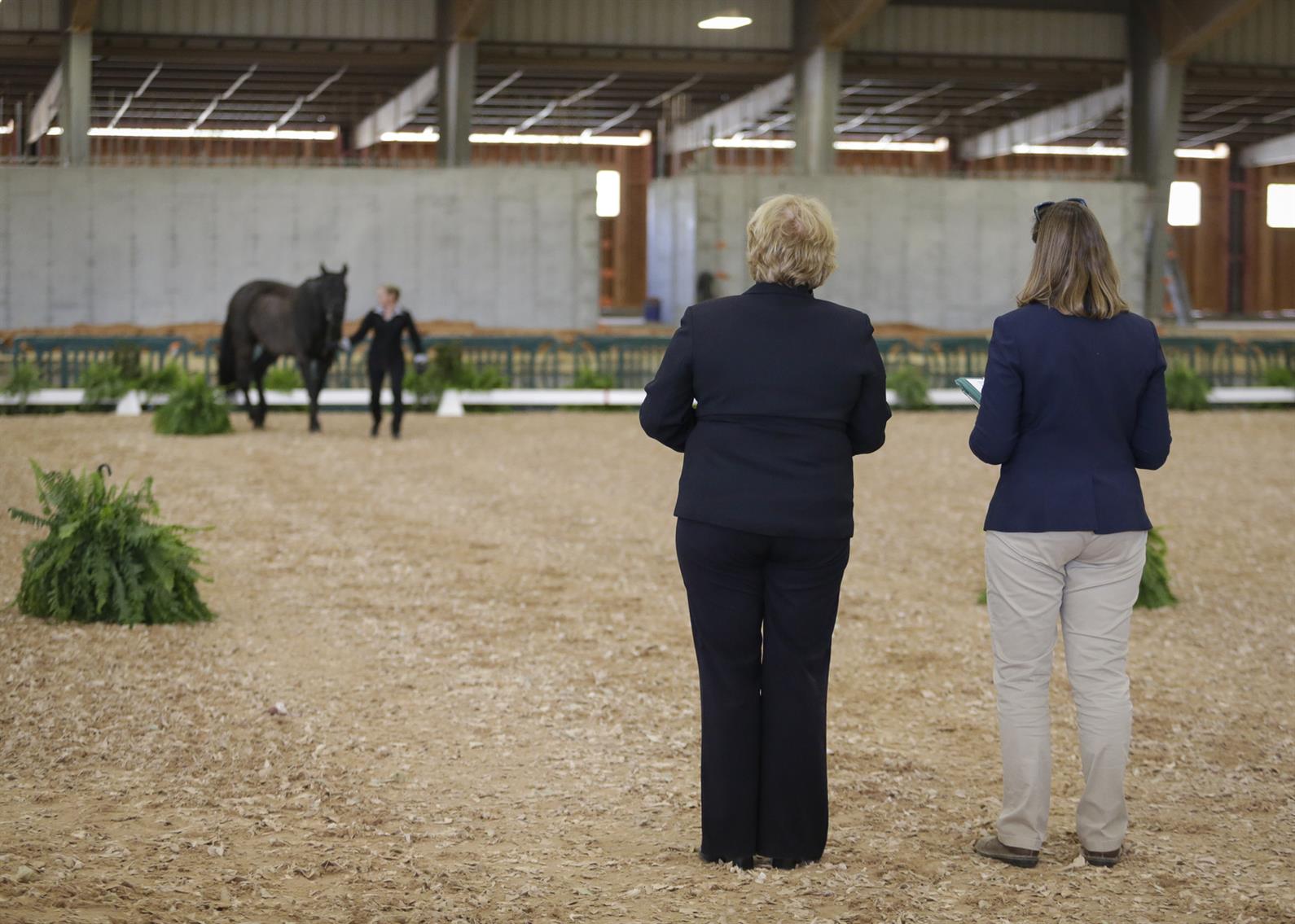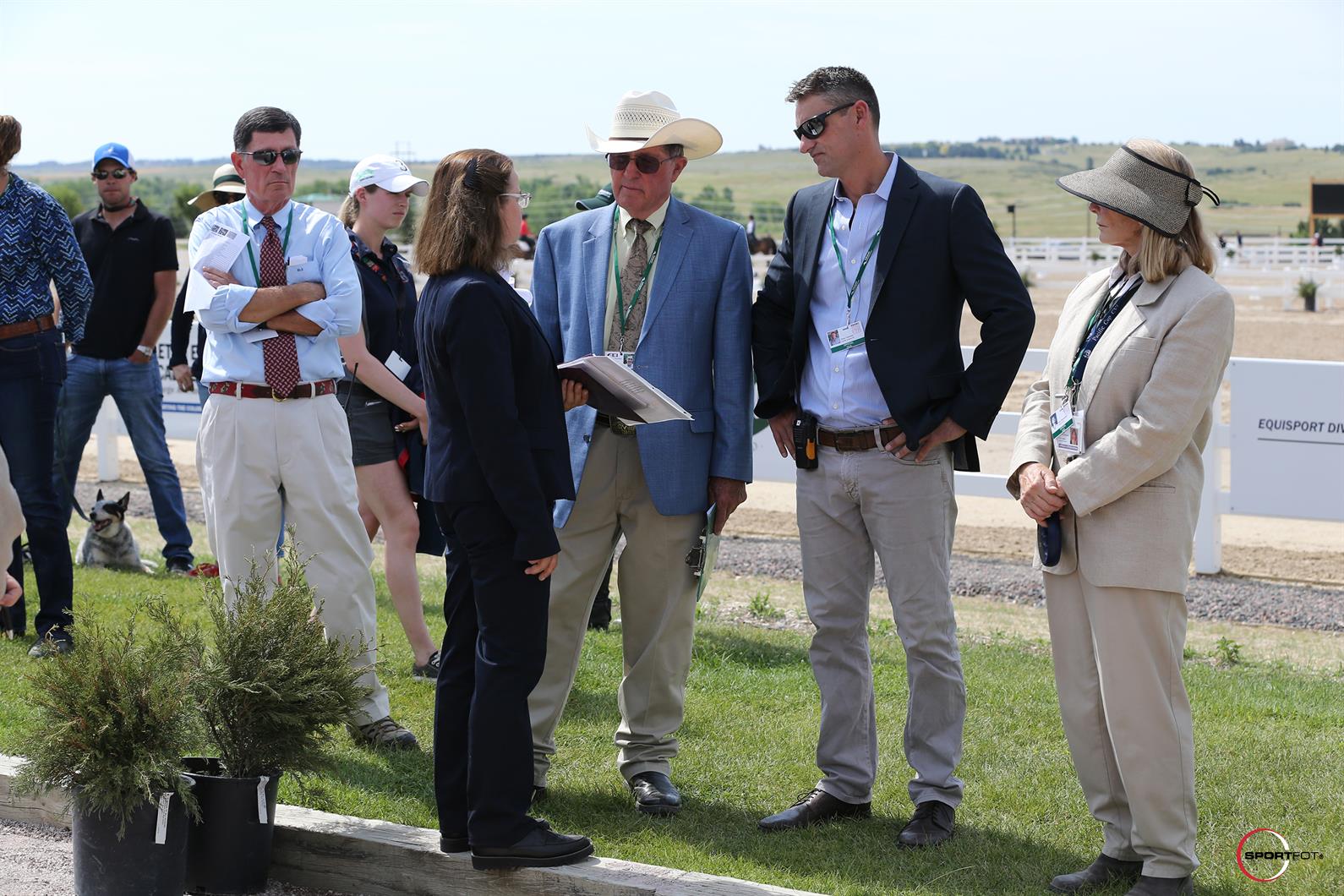
One of the best ways to contribute to your particular breed or discipline—and become a more knowledgeable competitor at the same time—is to join the ranks of licensed officials.
There are 154 different licenses, including licenses for judges, stewards, technical delegates, and course designers.
“For me, the most important reason to do it is to give back to the industry, and I also think it’s a responsibility and an honor to be in a position to guard the integrity of a breed or discipline,” said Cindy Mugnier, who began judging saddle seat equitation and Morgan classes in the 1990s. She later earned her American Saddlebred, Roadster, and Hackney licenses and is also chair of the United States Equestrian Federation's Licensed Officials Committee.
“We’re always looking for highly qualified individuals to judge horse shows, because judges affect numbers at a horse show,” Mugnier said. “We need new blood in the ring.”
Horse sports particularly need experienced professionals to become licensed officials, says Linda Andrisani, a hunter/jumper official with Registered (“R”) licenses in Hunter, Hunter/Jumping Seat Equitation, and Hunter Breeding, and a member of the USEF’s Licensed Officials Committee.
“It’s important that we have professionals who are teaching, training, and participating themselves as a rider, driver, or trainer at competitions,” said Andrisani. “We want professionals in the judges’ booth who are participating in the industry on a daily basis, who are competing, and who are actively preparing horses and getting them from the barn into the ring. They understand the challenges involved in getting horses and equestrians into the show ring.
“First, it’s good for them to give back to the industry that’s been good to them,” Andrisani continued. “Second, when you sit in that chair and have to make the ultimate decision about one blue ribbon, it’s an eye-opening situation. As a trainer or a professional, when you’re at the in-gate, you’re paying attention, but you’re thinking about your horse or your ride or your rider. You’re watching the show, but you’re not watching in quite the same capacity that a judge watches. Number three, you’re at a different location than the judges are, and that also makes things look different. The visual you have, as opposed to the visual from the judge’s stand, can be worlds apart. Once professionals and trainers allow themselves time in that judge’s booth, they comprehend the numerical scoring much better. It gives you a better perspective on what kind of horse or what kind of rider it takes to be at the top of a sport. You really get that perspective from the judges’ booth.”

The process of becoming a licensed official takes time, but it’s worth the investment. The road to a license starts with a call to the USEF’s Licensed Officials department. Each breed and discipline has its own requirements for officials, and the USEF can provide you with all the information you need on your particular path to a license.
“The first thing a person should do is to familiarize themselves with what they need to get done to become a licensed official,” said Mugnier. “They need to learn what the requirements are, because they’re different for each license. Then start down the list of requirements.”
Mugnier suggests perusing US Equestrian’s Policies and Procedures document, which is available on the licensed officials' resource page on usef.org.
“That gives a template for each of the breeds and disciplines and what the requirements are for licensing and maintaining a license,” Mugnier explained.
As part of the training process, applicants may serve as apprentices to established licensed officials, who will provide guidance, critiques, and a close look at how officiating works. Honest feedback is a crucial part of training officials, and a recent rule clarification has increased transparency and accountability in this part of the process. That’s beneficial to all the parties involved, and, most importantly, it helps maintain the high standards exhibitors expect when they compete.
“With this new procedure, there’s more accountability, both for the clinicians who take apprentices and for the apprentices themselves,” Mugnier explained. “It’s much more transparent for the applicant, and it’s a better place for the evaluator to be in, too, because they have an opportunity not only to express how they feel but also give better direction to the applicant. The goal is to educate and have people go through the system who are the most highly qualified to take on the incredibly important job of making decisions in a judging atmosphere. Judging has a tremendous effect on the industry and on where the industry goes. It’s important to provide transparency and to provide to the exhibitor the most highly qualified individuals.”
Mugnier believes that the current process also will encourage current licensed officials to recommend potential new judging candidates to competition management. “They can say, ‘I had this individual, and he or she was terrific; if you’re looking for a judge, give this person a try. I can highly recommend this person,’” she said. “And I think that will help bring in that new blood.”

“Hopefully, the people who will take them on will be willing to explain where their weaknesses are and what they need to pursue before they go any farther,” Andrisani said. “The job can be more complicated than it first appears, and until you’re sitting in that chair and watching what’s taking place from the judge’s booth, it’s sometimes hard for even the professional to understand the difficulty of the job. People need immediate feedback, and they need to know what areas they’re good in and what areas they’re weaker in. It provides a guideline.”
It also will contribute to better education and, ultimately, lead to quality officials at competitions—which helps competitors and horse sports overall.
Even if you don’t end up becoming a licensed official yourself, educating yourself about licensed officials’ roles and perspectives can help make you a stronger competitor.
“I really encourage people, even if they’re not interested in becoming a judge, to audit a judging course,” said Mugnier. “It makes you such a better exhibitor, and it makes you understand that there’s a lot more to being an effective judge than you think there is.
“It’s such an honor and a privilege to be a licensed official, and it’s important to never lose sight of that,” she added. “You have to respect the animals you judge and the people that you judge and never forget what an honor it is to stand there and be paid for your opinion.”
Want more articles like this delivered to your inbox every week? Sign up here to receive our free Equestrian Weekly newsletter.
This article is original content produced by US Equestrian and may only be shared via social media. It is not to be repurposed or used on any other website aside from USequestrian.org.


